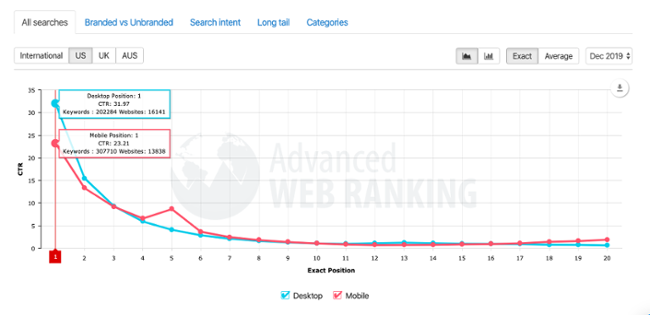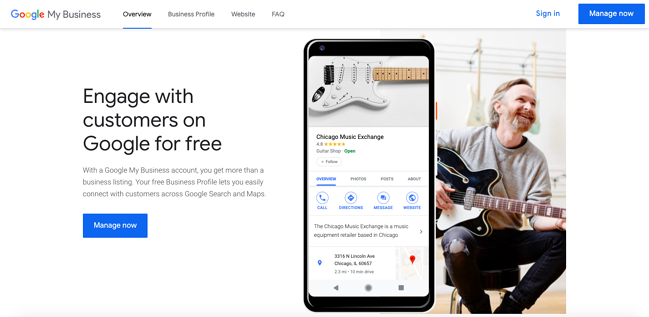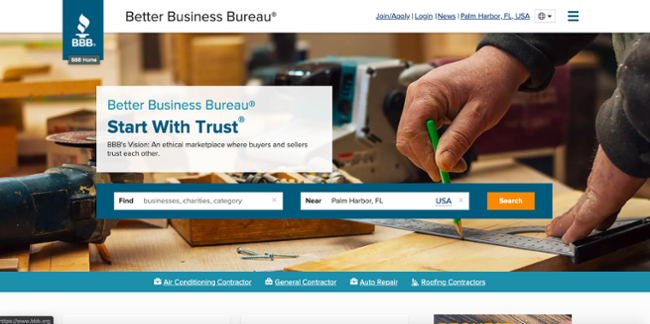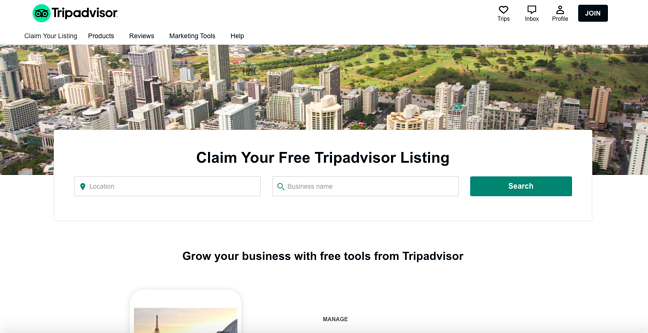Local businesses are blessed with a huge selection of marketing opportunities online. And given the current landscape, most buyers start their journey on search engines.
This is where local search engine optimization (SEO) comes in handy. Think about your customers and how they find you.
For example, let’s say you run a cafe. Chances are, a lot of locals in your community will find you by searching “cafes near me” or “cafes in [your area].” This process is referred to as local search.
No matter your business, local marketing is an essential component of your business plan. The best place to start optimizing for local search is by getting listed in business directories.
What Is a Business Directory?
A business directory is an online list of businesses that are categorized within a location or specific niche. When you’re included in these directories, your business gains a lot of visibility in local search queries.
While it takes some time to submit your business to get listed, it’s well worth the investment.
The 4 Benefits of Business Directory Listings
No matter your industry or area, the competition is heating up for grabbing the attention of your target audience. The longer you wait to get listed in local business directories, the more you’re losing out on potential business.
Here are some of the most notable advantages.
1. Rank Higher for Relevant Search Queries
Local SEO all comes down to gaining visibility and boosting brand awareness. How will your target audience find you if your site doesn’t show up when they Google services you provide?
By getting your business listed in relevant business directories, you’re gaining quality backlinks to your website, which delivers link equity. Essentially, links tell search engine bots that your site is credible. They act as votes of confidence.
Keep in mind that business directory listings are impactful, but they shouldn’t be your sole focus for link building. You want to diversify your link profile with other relevant referring domains.
2.Boost Organic Traffic
The effect of ranking higher is gaining more organic traffic. Advanced Web Ranking’s December 2019 research found that the first position in Google search engine results pages (SERPs) earned a 32 percent click-through rate on desktop and a 23 percent click-through rate on mobile.
Source: Advanced Web Ranking
As you can see, the drop off is pretty steep the further you go down in SERPs. Therefore, the more business directories you get listed on and earn backlinks from, the more authority you build with search engines.
This ultimately contributes to getting ranked higher on SERPs, which will earn you more clicks and more organic traffic.
3. Earn and Share Social Proof
Social proof carries a ton of weight with consumers. The concept of social proof is a psychological phenomenon that suggests people see others’ behaviors as more correct in certain situations.
Essentially, people are quick to assume that others around them, including friends and experts, have more knowledge about a particular circumstance that they are uncertain about.
So when we see experts commenting on a product or crowds gathering around a restaurant, for example, we tend to think that those people know something that we don’t.
This is how you can pique people’s interest. Through many online business directories, you can encourage customers to rate and review your company.
Some of the most impactful forms of social proof in marketing include case studies, testimonials, and reviews. By getting on the right directories and filling them with five-star reviews and quotes from happy customers, you’re bound to grab attention from your local audience.
4. Keep Your Online Presence Consistent
You can properly manage the details about your business on directories. By ensuring consistency of your information, you can better guide your audience to your website and even your front door.
This comes down to managing your NAP.
What Is NAP?
No, we’re not talking about sneaking in a snooze during the workday. For expert advice on that, reach out to George Costanza.
We’re talking about one of the most important aspects of local SEO. NAP is an acronym that stands for:
- Name
- Address
- Phone number
The benefits of ensuring NAP consistency are pretty obvious. You want your potential customers to be able to know your brand, identify where you’re located, and understand how they can reach out to you.
Start by checking your own website. Are all the details accurate and up to date? If not, make it so.
Then, look at your other channels, like your social media accounts. Once you see consistency throughout your current online presence, you’re ready to submit accurate information to online business directories.
What Is A Business Listing?
A business listing is a public profile that contains a business’s vital information such as its name, address, phone number, website, hours of operation, and often some additional details like product offerings or services.
These listings are usually found on various platforms such as online directories, social media sites, and search engine business pages.
The purpose of a business listing is to increase the visibility of the business and provide essential information to potential customers.
It’s a key aspect of local SEO (Search Engine Optimization) and digital marketing strategies, as it helps businesses appear in local searches and can influence their online reputation and discoverability.
How To Chose the Best Online Directories in 11 Steps
Choosing the best online directories for listing your business requires careful consideration of several factors to ensure maximum visibility and benefit.
Here are some key steps to guide you in selecting the best online directories:
- Relevance to Your Industry: Look for directories that are specific to your industry or business sector. Niche directories can be more effective in reaching your target audience compared to general directories.
- Popularity and Traffic: Consider the popularity and the amount of traffic the directory receives. Listing your business on high-traffic sites can increase your visibility and the likelihood of reaching potential customers.
- Domain Rating: The score given to websites to determine how well they rank on Google based on their backlink profile. The domain rating(DR) is from 0-100 and shows how strong a domain is. The higher the DR, the better impact on your website.
- Quality and Reputation: Evaluate the quality and reputation of the directory. Well-maintained directories that are respected and have good reviews are more likely to benefit your business.
- Local vs Global: Depending on your business type, decide whether a local directory or a global one would be more beneficial. For local businesses, community-focused directories can be very effective.
- Costs Involved: Some directories offer free listings while others charge. Assess the cost-benefit ratio to determine if paying for a listing will provide a good return on investment.
- Features Offered: Look at the features each directory offers, such as the ability to post reviews, photos, and detailed business information. More features can mean better engagement with potential customers.
- Ease of Use: Consider how easy it is to set up and maintain your listing. A user-friendly interface can save time and ensure that your business information stays up-to-date.
- Analytics and Reporting: Some directories provide analytics and reporting tools that can help you understand how your listing is performing. This data can be valuable for adjusting your marketing strategies.
- Peer Recommendations: Ask other business owners or industry peers which directories they have found beneficial. Personal recommendations can be very insightful.
- Compatibility with Your Marketing Goals: Ensure the directory aligns with your overall marketing and branding strategy. The directory should complement and enhance your existing marketing efforts.
Remember, the goal is not just to be listed in as many directories as possible but to choose those that will most effectively reach your target audience and align with your business goals.
Regularly review and update your listings to ensure accuracy and consistency across all directories.
20 Free Local Business Directories and Listings for Small Businesses
There are many awesome opportunities to get your business listed. And while it’s especially beneficial for small businesses, getting in local directories benefits businesses of all sizes and industries.
When you look at all these free listings, it can feel overwhelming, which is why tools like Moz Local are so helpful.
Automated listing management tools streamline everything, actively syncing your location data with their partners. By using this tool, you can save yourself a ton of time and resources while maintaining a consistent presence online.
Regardless of if you’re using these kinds of tools, you need to commit to getting listed on the following directories.
1. Google My Business
The obvious first choice is Google My Business. It essentially acts as the main street of local search. You can post updates to your free Business Profile, connect with customers, and see how people are interacting with your business online.
2. Facebook
Another easy go-to resource, your Facebook business page is incredibly valuable expanding brand awareness. You can create and post content, add special features (like menus or services listings), and promote your business page as well.
3. Apple Maps
A huge percentage of smartphone users have iPhones that come with Apple Maps as the default maps app. You can use Apple Maps Connect to get your business information listed and optimized there.
4. LinkedIn
The biggest professional social media network LinkedIn also hosts their own company directory. You want to build an informative LinkedIn company page that ranks for local searches. You can also optimize your company page to show up in LinkedIn searches.
5. Bing Places for Business
While this search engine is far less popular than Google, people still use it. Similar to Google My Business, you can use Bing Places for Business to build an optimized, comprehensive profile that shows up in Bing search.
6. Yelp
As a leading review site online, Yelp should be a key focus for your business listing. Set up a free Yelp account to claim and improve your business profile, interact with your customers, and access real-time analytics to understand how users engage with your listing.
7. Better Business Bureau (BBB)
A renowned directory that’s been around for over 100 years, the BBB still stands tall in establishing credibility and building trust with consumers. Create a BBB Business Profile to manage your reputation, and consider applying for accreditation to add even more credibility to your online presence.
8. MapQuest
Another commonly used mapping service, MapQuest offers business owners control of their listing through their Local Business Center. This is another place to ensure NAP consistency so your target audience can actually find you.
9. Angie’s List
This highly reputable review platform provides a Business Center, where you gain access to several free tools for connecting with customers and gathering honest feedback. You can even opt for some advertising opportunities.
10. Yahoo! Local
This is another Google My Business alternative that you can optimize for. Yahoo! Local partnered with Yext, a brand management tech company, to provide business listing services. You simply add your information and manage your Yahoo! Local listing, as well as listings on over 50 other online services.
11. Yellow Pages
Known as “The Real Yellow Pages,” YP.com gives you the opportunity to claim your free ypProfile to optimize your listing. You can also distribute your profile on other search sites.
12. Manta
In the small business world, Manta stands out as a top business directory. It’s incredibly easy to create a free company profile. It lists small businesses in all kinds of industries, including business services, tech, food and beverage, consumer products, and industrial.
13. Tripadvisor
Local businesses can benefit from managing a strong Tripadvisor profile. This is an especially popular outlet for hospitality companies. Grab your free listing tools by creating a profile.
14. Instagram
When you consider the fact that over 200 million Instagram users visit at least one business profile each day, this is another obvious choice. You can create an awesome Instagram Business Account to create content, connect with users, and gather metrics in real time.
15. Foursquare
When you claim your business listing on Foursquare, you get to control many elements, including top photos, categories, your NAP, and additional links. And of course as with most business listings, you get access to analytics tools.
16. Zomato
If you’re in the restaurant industry, using Zomato for your listings is a no brainer. Formerly known as Urban Spoon, this listing continues to be a popular choice for foodies. Simply create an account and wait for the Zomato team to verify you.
17. Glassdoor
Some consumers like to do a deep dive on companies, and if you have an informative Glassdoor company page, you’re establishing even more credibility. Simply create an employer account, then share your awesome workplace culture with the world.
18. Chamber of Commerce
Another great way to gain exposure in both local SEO and in person is by getting involved with your local chamber of commerce. Your city will list your business, usually in industry categories, so people in your community can find you when they’re searching for products or services you may offer.
19. Citysearch
Citysearch is a great outlet for locals to highlight fun things to do in the area. The categories the site presents includes restaurants, spa and beauty, hotels, shopping, nightlife, and exclusive deals. You can get your business listed on Citysearch by using Express Update.
20. Alignable
This small business network is more geared toward connecting local business owners to help each other succeed. The main goal is to earn referrals from other local small business owners. All you have to do is sign up for an Alignable account, then add your business information to your profile.
Wrapping up
These are just the start of where you can boost your local SEO. You can industry-specific business directories that relate to your domain of activity. No matter where you start, the important thing to do is start.
The longer you wait to join online business directories, the more potential customers you’re losing to your competition.
Read more:



